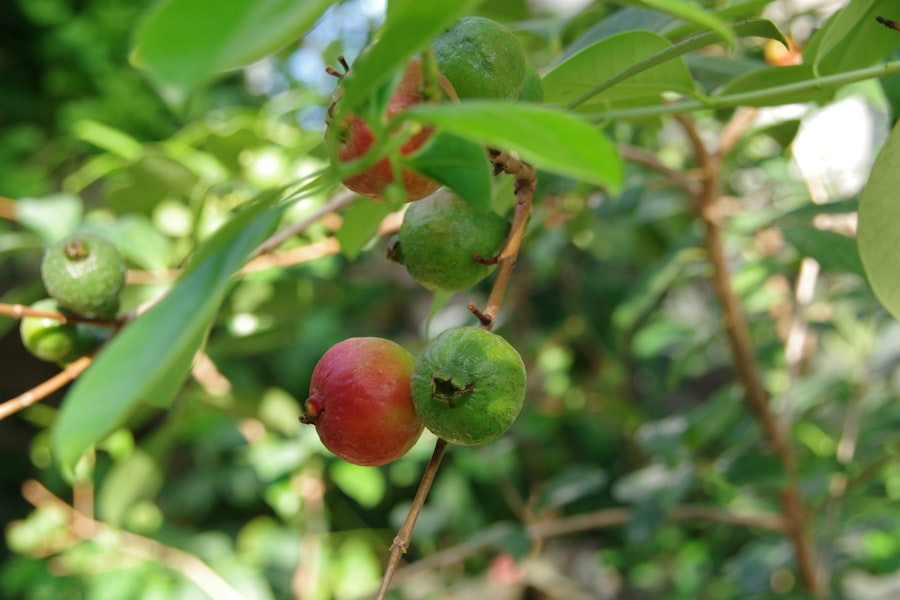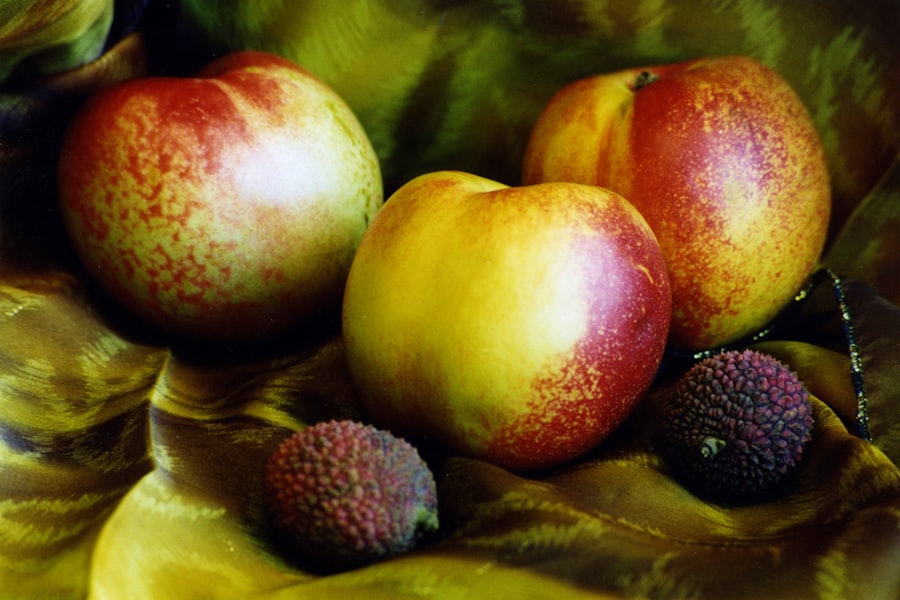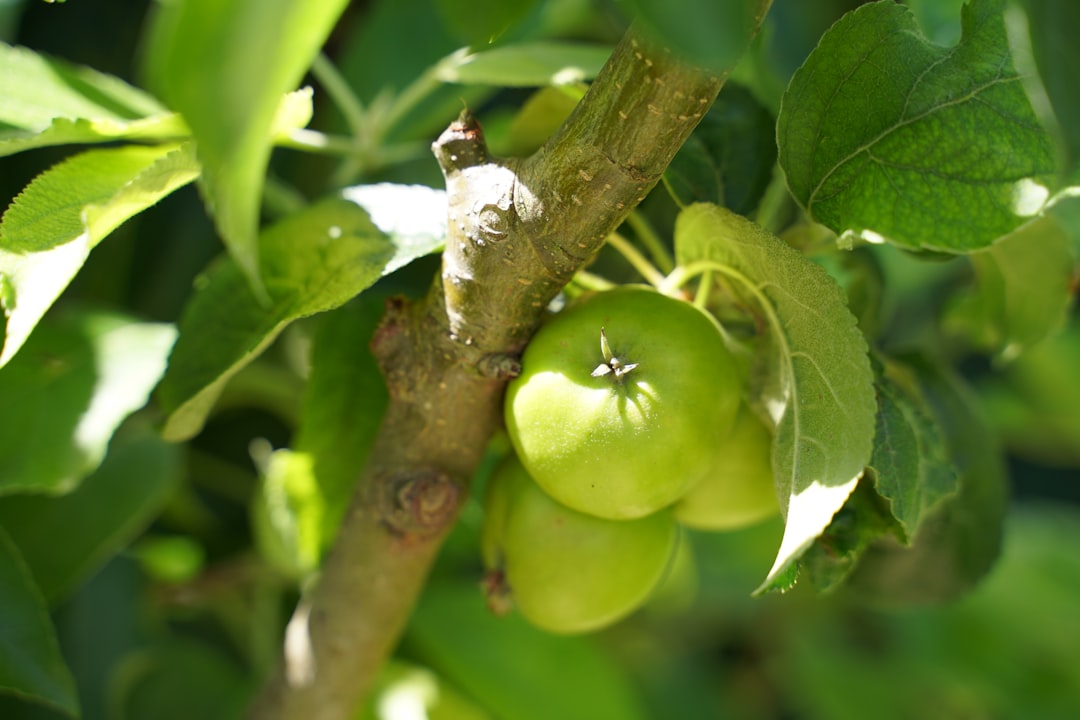In recent years, the fruit industry has witnessed a remarkable transformation, largely driven by advancements in technology. The ripening process of fruits, which is crucial for determining their flavor, texture, and overall quality, has become a focal point for researchers and producers alike. As consumers increasingly demand fresh, high-quality produce year-round, the need for innovative solutions to manage fruit ripening has never been more pressing.
Advanced technologies are now being employed to control and manipulate the ripening process, ensuring that fruits reach their optimal state while minimizing waste and extending shelf life. The integration of technology into the fruit ripening process not only enhances the quality of the produce but also addresses significant challenges faced by growers and distributors. By harnessing scientific knowledge and cutting-edge tools, the industry is moving towards a more sustainable and efficient model of fruit production.
This article delves into the science behind fruit ripening, the challenges associated with it, and how advanced technology is reshaping the landscape of the fruit industry.
Key Takeaways
- Advanced technology plays a crucial role in controlling and halting the fruit ripening process to extend shelf life.
- Understanding the science behind ripening helps address challenges like spoilage and quality loss.
- Technologies such as controlled atmosphere storage and ethylene inhibitors are commonly used to delay ripening.
- Halting ripening benefits include reduced food waste, improved fruit quality, and economic gains.
- Consumer acceptance and environmental impacts are key considerations for the future development of these technologies.
The Science Behind Fruit Ripening
Fruit ripening is a complex biological process that involves a series of physiological and biochemical changes. These changes are primarily driven by the plant hormone ethylene, which plays a pivotal role in signaling the transition from immature to mature fruit. As fruits ripen, they undergo transformations in color, texture, and flavor, making them more appealing to consumers.
The production of ethylene is influenced by various factors, including temperature, humidity, and the presence of other gases, which can either accelerate or delay the ripening process. Understanding the science behind fruit ripening is essential for developing effective strategies to control it. Researchers have identified specific genes and enzymes involved in the ripening process, paving the way for biotechnological interventions.
For instance, genetic modifications can be employed to enhance or inhibit ethylene production, allowing for precise control over when and how fruits ripen. This scientific foundation is crucial for implementing advanced technologies that can optimize fruit quality while reducing spoilage and waste.
Challenges of Fruit Ripening Process

Despite the advancements in understanding fruit ripening, several challenges persist in managing this natural process. One of the primary issues is the inconsistency in ripening among different fruits and even within the same batch. Factors such as varying maturity levels at harvest, environmental conditions during transportation, and storage practices can lead to uneven ripening.
This inconsistency not only affects the quality of the fruit but also poses significant economic challenges for producers who may face losses due to spoilage. Additionally, the traditional methods of ripening often involve exposure to ethylene gas or controlled temperature environments, which can be labor-intensive and costly. These methods may not always yield the desired results, leading to further complications in supply chain management.
As a result, there is a pressing need for innovative solutions that can streamline the ripening process while ensuring that fruits maintain their quality throughout their journey from farm to table.
Role of Advanced Technology in Halting Fruit Ripening
| Technology | Application | Effect on Fruit Ripening | Key Metrics | Benefits |
|---|---|---|---|---|
| Modified Atmosphere Packaging (MAP) | Alters gas composition around fruit | Slows down respiration and ethylene production | O2: 2-5%, CO2: 3-10%, Storage life extended by 30-50% | Extended shelf life, reduced spoilage |
| Ethylene Inhibitors (e.g., 1-MCP) | Blocks ethylene receptors in fruit | Delays ripening and senescence | 1-MCP concentration: 0.5-1 ppm, Ripening delayed by 7-14 days | Maintains firmness and freshness |
| Cold Storage with Controlled Atmosphere (CA) | Regulates temperature and gas levels | Reduces metabolic rate and ethylene synthesis | Temperature: 0-4°C, O2: 1-3%, CO2: 1-5%, Storage life extended by 2-4 weeks | Preserves quality and nutritional value |
| Nanotechnology-based Coatings | Applies edible nano-coatings to fruit surface | Controls gas exchange and moisture loss | Coating thickness: 10-100 nm, Shelf life increased by 20-40% | Improved texture and reduced decay |
| Ultraviolet (UV) Light Treatment | Exposes fruit to UV-C light | Inhibits microbial growth and delays ripening | UV-C dose: 0.5-1.5 kJ/m², Ripening delayed by 3-7 days | Enhanced safety and extended freshness |
Advanced technology plays a crucial role in halting or controlling fruit ripening at various stages of production and distribution. Techniques such as modified atmosphere packaging (MAP) and controlled atmosphere storage (CAS) have gained popularity for their effectiveness in slowing down the ripening process. By altering the composition of gases surrounding the fruit, these methods can significantly extend shelf life while preserving quality.
Moreover, emerging technologies such as ethylene inhibitors and smart sensors are revolutionizing how producers manage fruit ripening. Ethylene inhibitors work by blocking the action of ethylene on fruits, effectively delaying ripening without compromising flavor or texture. Smart sensors equipped with real-time monitoring capabilities allow growers to track environmental conditions and make data-driven decisions regarding harvesting and storage practices.
These technological advancements not only enhance efficiency but also contribute to reducing food waste on a global scale.
Benefits of Halting Fruit Ripening
The ability to halt or control fruit ripening offers numerous benefits for both producers and consumers. For growers, extending the shelf life of fruits means reduced losses due to spoilage and increased profitability. By managing the ripening process more effectively, producers can ensure that their products reach consumers in optimal condition, enhancing customer satisfaction and loyalty.
For consumers, the advantages are equally significant. Fruits that are harvested at peak maturity but allowed to ripen at a controlled pace can offer superior taste and nutritional value. Additionally, with longer shelf lives, consumers have access to fresher produce for extended periods, reducing the frequency of grocery shopping trips and minimizing food waste at home.
The overall impact of halting fruit ripening extends beyond individual benefits; it contributes to a more sustainable food system by optimizing resource use and reducing environmental strain.
Types of Advanced Technology Used in Halting Fruit Ripening

A variety of advanced technologies are currently employed to halt or control fruit ripening effectively. One prominent method is modified atmosphere packaging (MAP), which involves altering the composition of gases within packaging materials to slow down respiration rates in fruits. By reducing oxygen levels and increasing carbon dioxide concentrations, MAP creates an environment that delays ripening while maintaining freshness.
Controlled atmosphere storage (CAS) is another widely used technique that involves regulating temperature and humidity levels in storage facilities. This method allows for long-term storage of fruits without significant loss of quality. Additionally, ethylene inhibitors such as 1-Methylcyclopropene (1-MCP) have gained traction for their ability to block ethylene receptors in fruits, effectively delaying ripening processes without affecting taste or texture.
Emerging technologies such as blockchain for supply chain transparency and artificial intelligence for predictive analytics are also making waves in the industry. These innovations enable producers to monitor conditions throughout the supply chain closely and make informed decisions about when to harvest or transport fruits based on real-time data.
Impact of Advanced Technology on Fruit Quality and Shelf Life
The implementation of advanced technology in halting fruit ripening has had a profound impact on both fruit quality and shelf life. By utilizing techniques such as MAP and CAS, producers can significantly extend the freshness of fruits while preserving their taste and nutritional value. This preservation is crucial for maintaining consumer satisfaction and ensuring that fruits remain appealing throughout their journey from farm to market.
Moreover, advanced technologies allow for better control over environmental conditions during storage and transportation. By minimizing exposure to ethylene gas and regulating temperature and humidity levels, producers can prevent premature ripening and spoilage. As a result, consumers benefit from higher-quality fruits that retain their flavor and texture for longer periods.
This enhancement in quality not only meets consumer expectations but also fosters trust in brands that prioritize freshness and sustainability.
Environmental and Economic Implications of Halting Fruit Ripening
The environmental implications of halting fruit ripening through advanced technology are significant. By reducing spoilage rates and extending shelf life, these technologies contribute to minimizing food waste—a pressing global issue with far-reaching consequences for sustainability.
Economically, halting fruit ripening can lead to increased profitability for producers by reducing losses associated with spoilage during transportation and storage. This economic benefit extends throughout the supply chain, from growers to retailers, ultimately benefiting consumers through more stable prices and improved access to fresh produce. Furthermore, as sustainability becomes an increasingly important factor in consumer purchasing decisions, companies that adopt advanced technologies may gain a competitive edge in the market.
Consumer Perception and Acceptance of Technologically Treated Fruits
Consumer perception plays a crucial role in determining the success of technologically treated fruits in the market. While many consumers appreciate the benefits of longer shelf life and improved quality, there remains a segment that is skeptical about the use of advanced technologies in food production. Concerns about artificial interventions and potential health implications can influence purchasing decisions.
To address these concerns, transparency is key. Educating consumers about the science behind these technologies and their benefits can help build trust. Initiatives that promote awareness about how advanced methods contribute to sustainability and reduce food waste may resonate positively with environmentally conscious consumers.
As awareness grows regarding the importance of food quality and safety, acceptance of technologically treated fruits is likely to increase.
Future Prospects and Developments in Halting Fruit Ripening
The future prospects for halting fruit ripening through advanced technology are promising as research continues to evolve. Innovations such as gene editing techniques like CRISPR hold potential for creating fruits with enhanced shelf life characteristics without compromising flavor or nutritional value. Additionally, ongoing developments in smart agriculture—incorporating IoT devices—will enable real-time monitoring of environmental conditions affecting fruit ripening.
The integration of artificial intelligence into supply chain management may further optimize harvesting schedules based on predictive analytics, ensuring that fruits are picked at their peak maturity while minimizing waste.
The Role of Advanced Technology in Shaping the Future of Fruit Industry
In conclusion, advanced technology is playing an increasingly vital role in shaping the future of the fruit industry by revolutionizing how fruit ripening is managed. Through scientific understanding and innovative applications such as modified atmosphere packaging, controlled atmosphere storage, and ethylene inhibitors, producers can enhance fruit quality while extending shelf life significantly. The benefits extend beyond individual growers; they contribute to a more sustainable food system by reducing waste and optimizing resource use.
As consumer expectations evolve towards fresher produce with minimal environmental impact, embracing these technological advancements will be essential for industry stakeholders seeking to thrive in a competitive market. The future holds exciting possibilities as research continues to uncover new methods for controlling fruit ripening while addressing consumer concerns about safety and sustainability. Ultimately, advanced technology will play a pivotal role in ensuring that high-quality fruits remain accessible to consumers worldwide while fostering a more resilient agricultural landscape.
Recent advancements in agricultural technology have led to the development of methods that can effectively halt the ripening process of fruits, extending their shelf life and reducing food waste. For more insights into innovative agricultural practices and their impact on food preservation, you can read this related article on Hey Did You Know This. This resource provides a wealth of information on various technologies that are transforming the way we manage and consume food.
WATCH THIS! The 100-Year Lie That Built Your Grocery Store — The Hidden Truth About “Fresh” Produce
FAQs
What is the technology that stops fruit ripening?
The technology that stops fruit ripening typically involves controlling or inhibiting the ethylene gas production or action in fruits. Ethylene is a natural plant hormone responsible for the ripening process. Methods include using ethylene blockers, modified atmosphere packaging, refrigeration, and chemical treatments to delay ripening and extend shelf life.
How does ethylene affect fruit ripening?
Ethylene is a plant hormone that triggers and regulates the ripening process in many fruits. It promotes changes such as softening, color change, and sugar accumulation. By controlling ethylene levels or its effects, the ripening process can be slowed or temporarily halted.
What are common methods used to stop or delay fruit ripening?
Common methods include:
– Using ethylene inhibitors like 1-Methylcyclopropene (1-MCP) to block ethylene receptors.
– Modified atmosphere packaging that reduces oxygen and increases carbon dioxide around the fruit.
– Refrigeration to slow down metabolic processes.
– Controlled atmosphere storage with regulated oxygen, carbon dioxide, and humidity levels.
– Chemical treatments that interfere with ethylene synthesis or action.
Is the technology that stops fruit ripening safe for consumers?
Yes, many technologies such as 1-MCP and controlled atmosphere storage are considered safe and are approved by food safety authorities worldwide. These methods do not leave harmful residues and help reduce food waste by extending fruit shelf life.
Can this technology be used on all types of fruits?
The technology is most effective on climacteric fruits, which continue to ripen after being harvested, such as bananas, apples, tomatoes, and avocados. Non-climacteric fruits like strawberries and grapes do not respond significantly to ethylene-based ripening control.
Does stopping fruit ripening affect the taste or nutritional value?
When properly applied, these technologies delay ripening without significantly affecting taste or nutritional value. However, if fruits are stored too long or under improper conditions, quality may decline.
Why is it important to stop or delay fruit ripening?
Delaying fruit ripening helps reduce post-harvest losses, extends shelf life during transportation and storage, and ensures fruits reach consumers in optimal condition. This technology supports food supply chains and reduces food waste.
Are there any environmental benefits to using ripening control technology?
Yes, by extending the shelf life of fruits and reducing spoilage, this technology helps decrease food waste, which in turn reduces the environmental impact associated with food production, transportation, and disposal.
